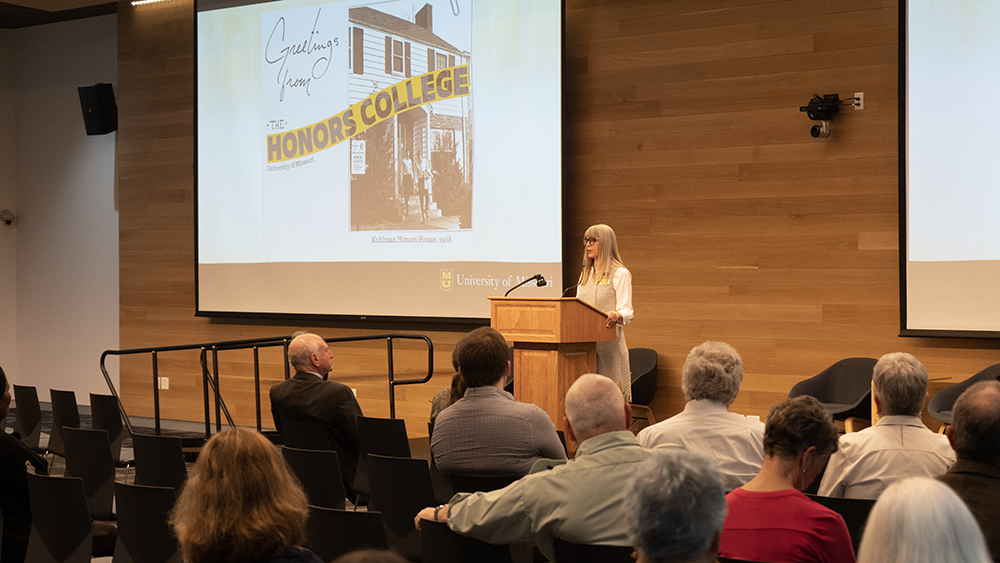Published on Nov. 22, 2023

We live in interesting times, when the voices that question the role of higher education and the value of a college degree are gaining momentum. We are told that the return on your investment in college depends on the choice of your major. The cost of higher education has grown over time and our stakeholders are right in asking if sending a child to college is an expenditure that yields a large and positive return. Careers, jobs, and salaries after graduation are important. At the same time, given that the half-life of our knowledge is decreasing every day, it is critical that we teach our students to think, to broaden their perspective and to do more than specialize in a skill that may get outdated in a few years. How do we help our students learn to be curious and stay curious? How can we help our students embrace the concept of life-long learning? How can we help them understand that the joy of learning has to do more with asking questions than with finding answers?
Of course, college should equip students with the skills they need to become gainfully employed. But as important, if not more, college is about helping students become meaningfully employed. We want our graduates to think for themselves, especially understanding why they think the way they do, and why those who think differently think the way they do. It is about staying curious, and becoming engaged citizens who welcome opinions that may differ vastly from their own, all of which strengthens our core democratic values of liberty and freedom.
Here at Mizzou we have a sequence of courses offered through the Honors College where students from any major can opt into a journey of discovery on a wide range of topics, including art, literature, music, philosophy, and more. The Humanities Sequence is a 4-semester sequence of courses that started in 1954. Dr. Rachel Harper, who oversees this course, describes it as such:
“It was originally conceived of as a two-semester interdisciplinary course (along the lines of signature ‘Great Books’ courses at places like Columbia University and the University of Chicago) that 1) gave students an opportunity to explore the art, literature, music and philosophy that has so deeply influenced our modern world; 2) tried to combat the cultural trend toward specialization; and 3) encouraged students to broaden their perspective, to deepen their thinking, to ponder what we call in humanities “The Great Questions.” The course quickly grew into a four-semester sequence and its popularity among both students and faculty led to the founding of the Honors College in 1958.
Fondly referred to as the “Hum Sequence,” the uniqueness of Mizzou’s offering compared to somewhat similar courses offered at other universities is that it is truly interdisciplinary. The faculty who created and developed these courses include Charlie Hudson, Bill Bondeson, and Ted Tarkow.
Recently we celebrated and shared with the MU community the many initiatives that Dean Catherine Rymph is leading at the Honors College. She has expanded the curriculum so Honors students can earn their 24 honors credits in many ways: they can take honors versions of courses required for their major; they receive honors credit for study abroad, research, and graduate courses; and they get honors credit for taking our signature interdsciplinary general honors courses. Honors students can do an “honors version” of whatever they want to study. This “choose your own adventure” model is a strength of our program because it gives students the flexibility needed to complete their degree while benefitting from the interdisciplinary study that the Honors courses facilitate.
As Dean Rymph describes it:
“The core part of the honors experience is the opportunity to be in a small interdisciplinary general honors course where students from different majors and faculty from different disciplines wrestle with texts and ideas, where they discuss and debate. Those classes encourage students to lean into curiosity, to form connections, to listen to each other, to develop their capacious, flexible minds, to nurture empathy and to practice the reading, writing and speaking skills that employers say they are seeking, regardless of field. These small discussion classes are also the experiences that our alumni, decades later, tell us were among their most meaningful college experiences and which stayed with them long after they left MU.”
Dean Rymph and her team have spent the last year expanding their signature courses, including the tutorials and Extended One Read seminars, as well as these interdisciplinary series courses — the Humanities Sequence; the Behavioral Science series; and the new Social Science Series called “Revolutions and Constitutions,” in partnership with the Kinder institute. They are currently hiring a new colleague to revamp the Natural Science series that promotes scientific literacy and knowledge for non-STEM Honors students.
To be able to offer a special first year experience for all Honors students, the Honors College is also planning to recruit teaching fellows who will teach small, signature classes. They have secured funding, thanks to a generous Honors alum, to fund the first endowment for these Teaching Fellows. The first faculty member chosen for this role will be known as “The Tarkow Fellow,” named after Dr. Ted Tarkow, who has inspired generations of honors students at MU. Read Ted’s Toast to Honors and why our MU Honors College is truly a home away from home.
Student success is a non-negotiable goal and the work of our faculty and staff at the Honors College is geared to helping our students become the ideal citizens our society needs.